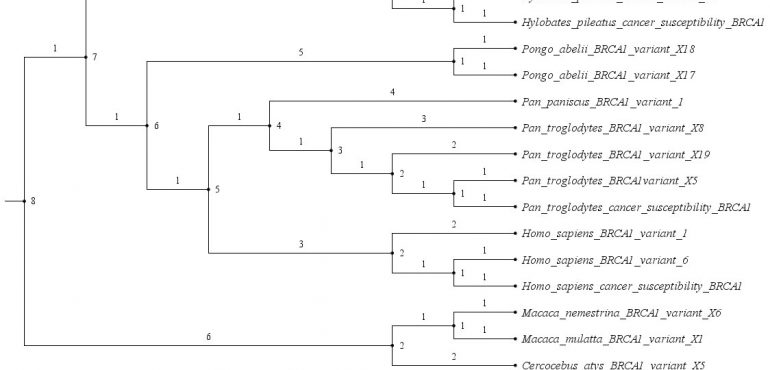Tommy Rodriguez
Department of Research & Development, Pangaea Biosciences, Miami, FL, USA
Email: trodriguez[@]pangaeabio.com
Rodriguez, T. (2018). A Review on the Evolutionary Trajectories of mRNA BRCA1/2 Genes in Primates and the Implications of Cancer Susceptibility Variants within Immediate Human Populations. Journal of Applied Life Sciences International, 2394-1103,Vol.: 18, Issue.: 2. DOI: 10.9734/JALSI/2018/43129.
Abstract
Researchers have shown that cancer susceptibility in BRCA1/2 occurs at disproportional rates and statistical degrees across a wide range of species, particularly non-human primates. This study incorporates two primary scopes for examining BRCA 1/2 cancer susceptibility among closely related lineages: (1) phylogenetic reconstruction of mRNA BRCA1/2 genes (both cancer susceptible and non-cancer susceptible) in variously distinct primate families (including Homo sapiens); and (2) pairwise comparative analysis of breast cancer 1 early onset BRCA1 mRNA partial cds within immediate human populations. The results generated by phylogenetic reconstruction together with pairwise comparative analysis revealed that cancer-causing alterations in BRCA1/2 appear to originate within localized gene pools at separate junctures throughout evolutionary time. This supports the explanation that BRCA1/2 genes may be undergoing rapid evolution, as revealed by unusually high proportion of dissimilarities between cancer susceptibility sequences among members of each group or species.
Keywords: breast cancer, ovarian cancer, phylogenetics, multiple sequence alignment, pairwise sequence alignment, BRCA genes


